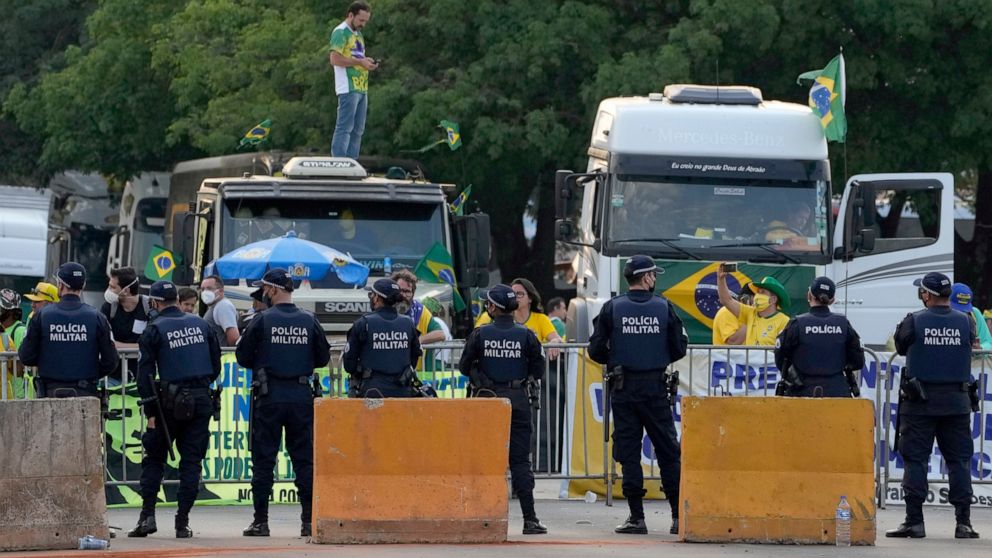September 9, 2021
-ABC
RIO DE JANEIRO — Truckers protested along highways in more than half of Brazil’s states on Thursday, snarling traffic on some as they offered a show of support for President Jair Bolsonaro even as he pleaded for them to let vehicles pass.
A joint bulletin from the Infrastructure Ministry and Federal Highway Police said truckers were concentrated on federal highways in 15 states of Brazil’s 27 states. It said the police had opened several highways in the morning, and that protests were no longer blocking all of traffic.
Bolsonaro rallied demonstrations on Tuesday to coincide with Independence Day and show strength as his approval ratings slide and he feuds with the Supreme Court. Truckers turned out in force, even parking on the capital’s central mall. They remain mobilized two days later, raising concern that Bolsonaro may have lost control of his supporters after firing them up with incendiary rhetoric.
Truckers were leery of the authenticity of an audio message Bolsonaro recorded in which he asked them to stand down and expressed concern blockages could further stoke inflation and cause shortages. His infrastructure minister, Tarcisio Gomes de Freitas, recorded a video late Wednesday assuring them the president’s audio was real.
“We know everyone is concerned with improving the country’s situation, everyone is concerned with resolving serious problems, but we can’t try to resolve a problem by creating another, particularly hurting the most vulnerable people,” Gomes de Freitas said in the video. “That’s the president’s concern. I ask you all to listen attentively, hear the president’s words.”
There were reports of persisting traffic jams caused by truck drivers in several states on Thursday. In the state of Bahia, protesters had blockaded the entrance to the municipality of Luis Eduardo Magalhaes, only letting cars in.
An 11-day truckers’ strike in 2018 caused food prices to surge, grocery market shelves to empty of some products and gas stations to run out of fuel. It caused billions in losses and revealed the vast power that organized truckers possess.
Bolsonaro, at that time a lawmaker and months away from winning the presidential election, was an outspoken supporter of the truckers, and they became a constituency of his.
But he is now president and inflation that has already surged to near double digits is a key contributor to his falling approval ratings. Early polls show him losing his reelection bid next year.
Photos on social media showed cars lining up at gas stations in several states amid concern fresh shortages could be in store. ——— AP writer Débora Álvares contributed from Brasilia.




